Across Europe, and indeed in Ireland, a significant shift is underway—a shift that goes beyond the simple definition of renewable energy. No longer is the development of wind turbines, solar farms or anaerobic digestion (AD) plants solely about producing clean energy. It’s no longer just about being green or meeting targets. The focus has firmly shifted to energy security and strengthening our competitiveness.
The EU’s Green Deal originally laid out a roadmap for a green energy transition. While the principles of the Green Deal remain, the emphasis over this term will pivot towards reducing energy costs, mitigating supply vulnerabilities and boosting the EU economy through renewable energy development.
Ireland stands at a similar crucial juncture, and the next Government term will be pivotal in shaping our energy and economic future. The draft Programme for Government, published last week contains ambitious goals in some areas but falls short in others. Here are five key themes you need to know about its renewable energy commitments.
Programme
The programme states that it’s the Government’s aim to achieve energy independence and take all necessary action to ensure and protect Ireland’s energy security. We’re in a changed world and this approach makes sense.
They commit to delivering 9GW of onshore wind, 8GW of solar, at least 5GW of offshore wind and up to 5.7 TWh of biomethane by 2030.
Renewables and farms
The programme has a specific focus on “harnessing renewable energy in the agriculture sector”. This section includes a commitment to maintain existing schemes, such as the 60% TAMS solar PV grant.
In horticulture they pledge to assist in the upgrading of facilities, particularly glass- houses, to ensure efficient production systems and reduction in energy usage.
Then things start to become more uncertain. The Government pledges to reward farmers for producing energy for private use or selling excess energy back to the electricity grid, as a way to diversify their income. But what does this actually mean? This is already possible, albeit the incentive to export is poor. Are they suggesting a fundamental change to the TAMS solar export rules to allow us to secure grant aid for export projects? That seems unlikely.
Biomethane receives little attention in the programme beyond vague references to financial incentives tied to the National Biomethane Strategy. There is no mention of the forthcoming flagship Renewable Heat Obligation, which has been proposed as the primary support mechanism for the AD sector.
This omission is telling and offers a glimpse of what lies ahead if the concerns of the AD industry are to be believed.
Community energy
Under the farm renewables section, they pledge to examine the community-led ownership models for renewable energy production as an additional income stream for farmers and increase the number of Sustainable Energy Communities.
Again, what exactly are they promising here? Community energy projects sound great in theory, but they require significant funding, expertise and sheer determination to succeed. For many communities, navigating Ireland’s convoluted development environment is nearly impossible. So, are they now proposing a rethink of this strategy—perhaps allowing communities to partner with commercial developers who can actually deliver a project?
I certainly hope so.

Will the new government, with a distinct rural theme, have the bravery to deliver the infrastructure needed to meet our 2030 targets and beyond?
They do state, however, that they will ensure community gain arrangements are in place and consider permanent, cheaper electricity as a possible option under community gain schemes. How this would work is anyone’s guess.
Planning
One of the more interesting points in the farm renewables section is the commitment to introduce planning guidelines for solar farms and provide certainty in the development of solar energy in agriculture.
The solar farm industry is thriving, but anti-solar sentiment is on the rise, making these guidelines a welcome development for some. Balancing the climate and income benefits for farmers against concerns over land loss and the impact on local communities will be anything but straightforward. It’s a complex issue, and by addressing it, they seem prepared to open a significant can of worms.
They will also prioritise the publication of Wind Energy Development guidelines, which are no longer fit for purpose and develop guidelines for battery storage. The programme makes several pledges regarding the planning system, including the implementation of the Planning and Development Act 2024 to fast-track developments.
Infrastructure
The programme states that the delivery of large-scale infrastructure projects is vital for the economy and society. They will prioritise early review of the National Development Plan which will be completed in July 2025 and will establish a clear regulatory pathway, enable network upgrades, improve port facilities and ensure a dependable schedule of renewable energy auctions.

The government aim to fast track projects.
They focus heavily on the electricity grid, and pledge to make the necessary investments to the electricity transmission and distribution system. They also commit to explore how a range of other funding sources, such as from the European Investment Bank, can be availed of. Why they never considered this before remains a mystery.
They also recommit to building interconnectors and intensify the transition to lower-cost renewables in electricity generation, and transition away from expensive imported fossil fuels, which is what we have already been doing.
Other notable points
Other notable points are their plan to commission an independent review into the speed and extent of wholesale price pass-through to retail prices, alongside an assessment of overall price dynamics, all with a focus on enhancing the competitiveness of the Irish economy.
They also pledge to develop Green Energy Industrial Parks to attract large-scale investments in regional areas, co-located with renewable energy generation. This is an interesting concept, with at least one such project already in development.
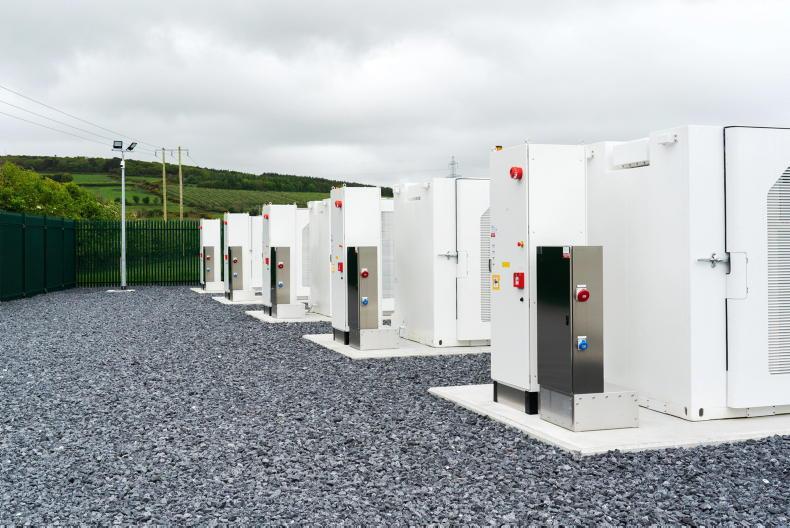
New planning guidelines for Battery Energy Storage Systems are the the way.
Another commitment is to hold at least one Renewable Electricity Support Scheme (RESS) auction per year.
This measure aims to ensure that Ireland continues to bring renewable energy projects online at a faster pace, the programme states.
Comment
While Ireland is exceptional at setting ambitious targets, we have an equally exceptional track record of falling short in delivering them.
There were a lot of targets set in the previous term of Government.
The new Government must resist the temptation to revise targets upwards, commission new reports or draft intricate plans for renewable energy rollout that have already been discussed at length.
Instead, the focus must be on action—on delivering existing targets, fine-tuning current schemes and accelerating the rollout of new ones.
What Ireland needs now is urgency, pace and even a sense of emergency.
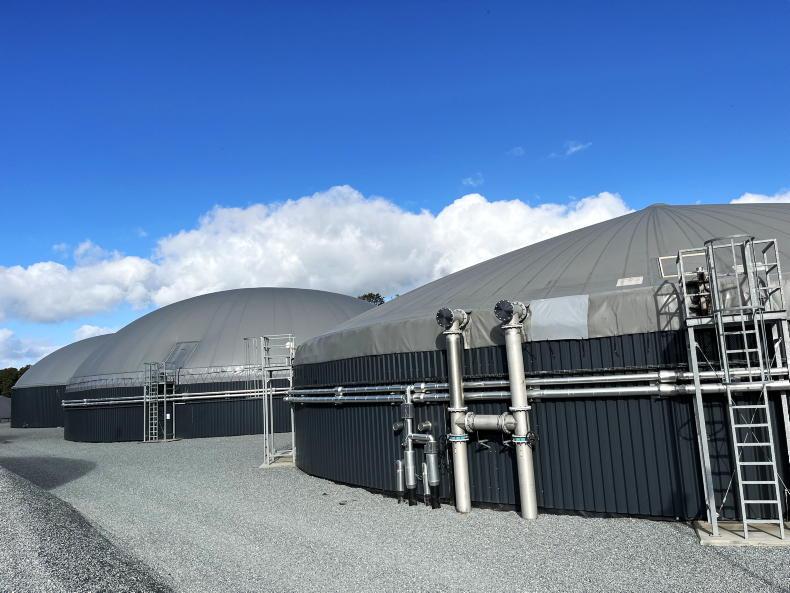
Biomethane doesn't feature heavily in the programme.
This will demand political courage to make bold decisions on grid infrastructure, streamline development approvals and ensure the civil service operates effectively.
It will demand confronting NIMBYism and overcoming parish-pump politics to challenge county development plans, local authorities and An Bord Pleanála where necessary.
The new Planning and Development Act may have provided them with the necessary tools to achieve just that.
In short
The new Programme for Government promises opportunities for farmers.It focuses heavily on renewable electricity. It falls short on key areas like farm-scale AD and biomass.
Across Europe, and indeed in Ireland, a significant shift is underway—a shift that goes beyond the simple definition of renewable energy. No longer is the development of wind turbines, solar farms or anaerobic digestion (AD) plants solely about producing clean energy. It’s no longer just about being green or meeting targets. The focus has firmly shifted to energy security and strengthening our competitiveness.
The EU’s Green Deal originally laid out a roadmap for a green energy transition. While the principles of the Green Deal remain, the emphasis over this term will pivot towards reducing energy costs, mitigating supply vulnerabilities and boosting the EU economy through renewable energy development.
Ireland stands at a similar crucial juncture, and the next Government term will be pivotal in shaping our energy and economic future. The draft Programme for Government, published last week contains ambitious goals in some areas but falls short in others. Here are five key themes you need to know about its renewable energy commitments.
Programme
The programme states that it’s the Government’s aim to achieve energy independence and take all necessary action to ensure and protect Ireland’s energy security. We’re in a changed world and this approach makes sense.
They commit to delivering 9GW of onshore wind, 8GW of solar, at least 5GW of offshore wind and up to 5.7 TWh of biomethane by 2030.
Renewables and farms
The programme has a specific focus on “harnessing renewable energy in the agriculture sector”. This section includes a commitment to maintain existing schemes, such as the 60% TAMS solar PV grant.
In horticulture they pledge to assist in the upgrading of facilities, particularly glass- houses, to ensure efficient production systems and reduction in energy usage.
Then things start to become more uncertain. The Government pledges to reward farmers for producing energy for private use or selling excess energy back to the electricity grid, as a way to diversify their income. But what does this actually mean? This is already possible, albeit the incentive to export is poor. Are they suggesting a fundamental change to the TAMS solar export rules to allow us to secure grant aid for export projects? That seems unlikely.
Biomethane receives little attention in the programme beyond vague references to financial incentives tied to the National Biomethane Strategy. There is no mention of the forthcoming flagship Renewable Heat Obligation, which has been proposed as the primary support mechanism for the AD sector.
This omission is telling and offers a glimpse of what lies ahead if the concerns of the AD industry are to be believed.
Community energy
Under the farm renewables section, they pledge to examine the community-led ownership models for renewable energy production as an additional income stream for farmers and increase the number of Sustainable Energy Communities.
Again, what exactly are they promising here? Community energy projects sound great in theory, but they require significant funding, expertise and sheer determination to succeed. For many communities, navigating Ireland’s convoluted development environment is nearly impossible. So, are they now proposing a rethink of this strategy—perhaps allowing communities to partner with commercial developers who can actually deliver a project?
I certainly hope so.

Will the new government, with a distinct rural theme, have the bravery to deliver the infrastructure needed to meet our 2030 targets and beyond?
They do state, however, that they will ensure community gain arrangements are in place and consider permanent, cheaper electricity as a possible option under community gain schemes. How this would work is anyone’s guess.
Planning
One of the more interesting points in the farm renewables section is the commitment to introduce planning guidelines for solar farms and provide certainty in the development of solar energy in agriculture.
The solar farm industry is thriving, but anti-solar sentiment is on the rise, making these guidelines a welcome development for some. Balancing the climate and income benefits for farmers against concerns over land loss and the impact on local communities will be anything but straightforward. It’s a complex issue, and by addressing it, they seem prepared to open a significant can of worms.
They will also prioritise the publication of Wind Energy Development guidelines, which are no longer fit for purpose and develop guidelines for battery storage. The programme makes several pledges regarding the planning system, including the implementation of the Planning and Development Act 2024 to fast-track developments.
Infrastructure
The programme states that the delivery of large-scale infrastructure projects is vital for the economy and society. They will prioritise early review of the National Development Plan which will be completed in July 2025 and will establish a clear regulatory pathway, enable network upgrades, improve port facilities and ensure a dependable schedule of renewable energy auctions.

The government aim to fast track projects.
They focus heavily on the electricity grid, and pledge to make the necessary investments to the electricity transmission and distribution system. They also commit to explore how a range of other funding sources, such as from the European Investment Bank, can be availed of. Why they never considered this before remains a mystery.
They also recommit to building interconnectors and intensify the transition to lower-cost renewables in electricity generation, and transition away from expensive imported fossil fuels, which is what we have already been doing.
Other notable points
Other notable points are their plan to commission an independent review into the speed and extent of wholesale price pass-through to retail prices, alongside an assessment of overall price dynamics, all with a focus on enhancing the competitiveness of the Irish economy.
They also pledge to develop Green Energy Industrial Parks to attract large-scale investments in regional areas, co-located with renewable energy generation. This is an interesting concept, with at least one such project already in development.

New planning guidelines for Battery Energy Storage Systems are the the way.
Another commitment is to hold at least one Renewable Electricity Support Scheme (RESS) auction per year.
This measure aims to ensure that Ireland continues to bring renewable energy projects online at a faster pace, the programme states.
Comment
While Ireland is exceptional at setting ambitious targets, we have an equally exceptional track record of falling short in delivering them.
There were a lot of targets set in the previous term of Government.
The new Government must resist the temptation to revise targets upwards, commission new reports or draft intricate plans for renewable energy rollout that have already been discussed at length.
Instead, the focus must be on action—on delivering existing targets, fine-tuning current schemes and accelerating the rollout of new ones.
What Ireland needs now is urgency, pace and even a sense of emergency.

Biomethane doesn't feature heavily in the programme.
This will demand political courage to make bold decisions on grid infrastructure, streamline development approvals and ensure the civil service operates effectively.
It will demand confronting NIMBYism and overcoming parish-pump politics to challenge county development plans, local authorities and An Bord Pleanála where necessary.
The new Planning and Development Act may have provided them with the necessary tools to achieve just that.
In short
The new Programme for Government promises opportunities for farmers.It focuses heavily on renewable electricity. It falls short on key areas like farm-scale AD and biomass. 







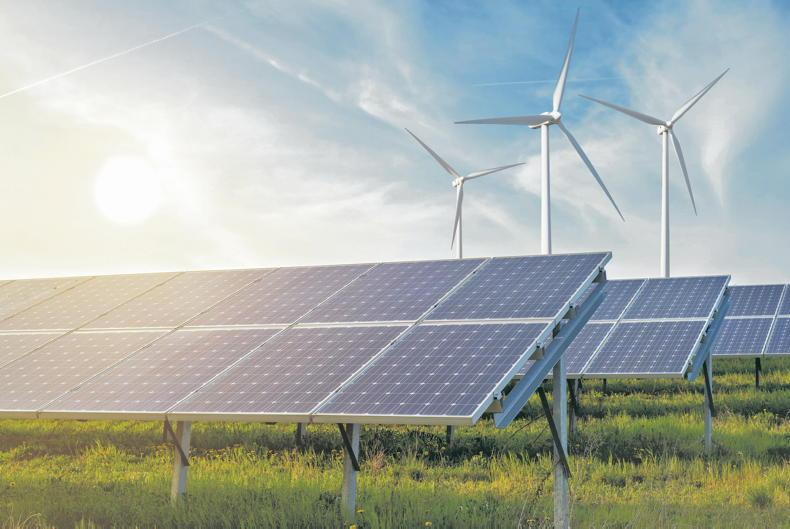


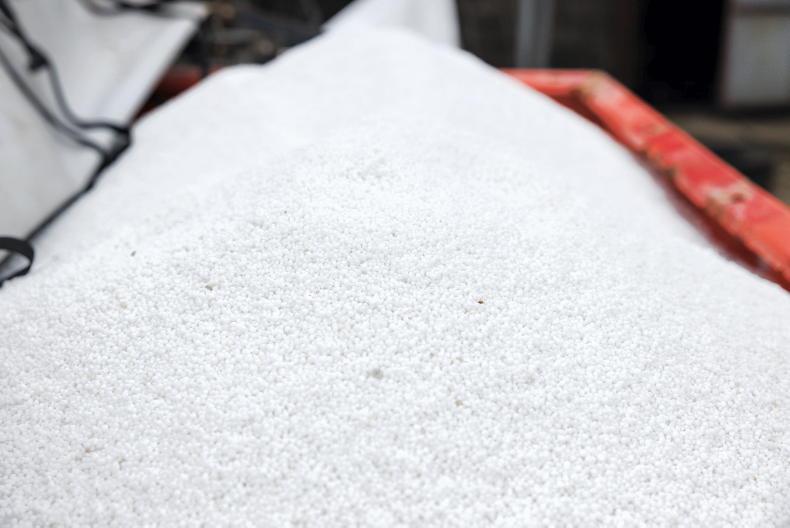
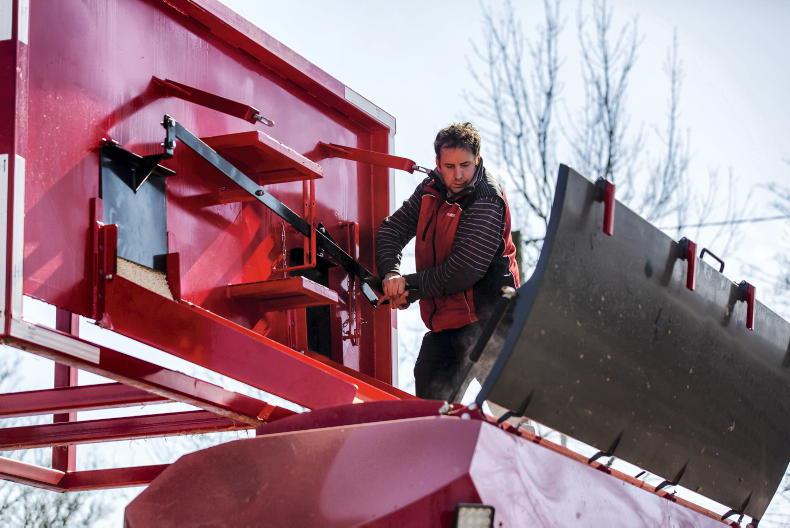
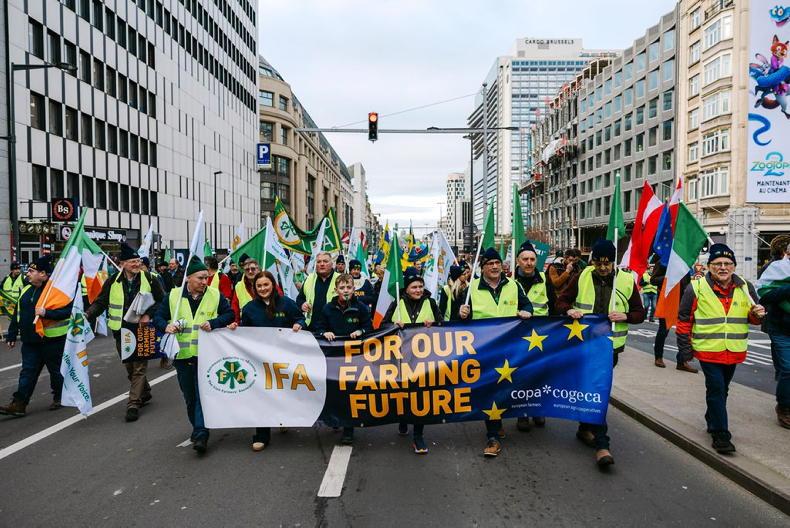
SHARING OPTIONS